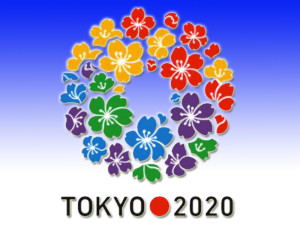Tokyo 2020 and the origins of the Olympic Games
Everyone knows Doraemon, Oliver & Benji and Pokemon; almost all of us have played videogames with a Nintendo or a PlayStation, and for sure we have in our houses some products made by Canon, Toshiba, Panasonic or Sony. Maybe, we were driving a Toyota or a Mitsubishi this morning. All those companies are from Japan, still the third most powerful economy in the world. Everyone knows how brilliant and efficient a Japanese worker is. Moreover, the highest life expectancy is currently in Japan, where the oldest people enjoy an enviable quality of life. Japanese food is one of the most delicious and at the same time healthiest foods in the world. In the Olympics, the Japanese delegation usually occupies top positions in the medal tables, without suffering any doping scandal. Therefore, it is not illogical that Tokyo has been elected to host the 2020 Games. However, many people do not know the origins of this huge event. Olympics are not simply a sport tournament, but an ancient celebration whose main values were peace and solidarity.

In ancient Greece, there were several athletic competitions, known as “agones”, (ἀγῶνες), which usually had a religious connotation. The character of most of them was either local or regional, whereas in other competitions Hellenic people from all Greece and overseas could participate. These were called Panhellenic (πᾶν – ἑλληνικῶς, literally “all the Hellenes”), celebrated in different sanctuaries, such as Isthmian in Corinth, or Pythian in Delphi. Nevertheless, the most well known was the Olympic Games, developed every four years since the Archaic age (in 776 B.C. was the first one to be known). Located in the sanctuary of Olympia, this event entailed a period of non-aggression despite any battle existent in that moment. The ἐκεχερία (/ekechería/) provided security for athletes and spectators that attended to the Games.
Unfortunately, some centuries later the Olympic Games were forbidden, considered as a pagan event. Pierre de Coubertin, born in Paris on 1st January 1863, in a wealthy family, decided to recover them. Sports were his main interest, owing to the fact that he considered them a necessary activity for our own body and also for reaching peace and solidarity. Coubertin took charge of the organization and coordination of the event, and thanks to the help provided by many European aristocrats and pedagogues his dream came true. One of his quotes has remained until our days: “The most important thing in the Olympic Games is not to win but to take part, just as the most important thing in life is not the triumph but the struggle. The essential thing is not to have conquered but to have fought well.” In fact, this can sum up his life: sport must not be linked to the idea of winning, but to an activity whose main purpose is to encourage self-improvement and solidarity.
Pierre de Coubertin has been sometimes criticized, because of his tendency to elitism, for example, owing to the fact that in the 19th century sport was only practised by wealthy people. He has also been criticized because women were banned to compete, thus not having the same rights as men. However, it is worth pointing out that these facts should be analysed taking into account the socio-historical context of that time, considerably different from nowadays. There were neither resources nor institutions that could allow common people to play sports in a professional way, and the civic awareness of the important role of women in society had not been claimed yet. Furthermore, one of the main problems to which Coubertin had to confront was the educational model. In France, the physical practices established by the Ligue d’Education Physique were similar to the military training, and therefore the activities were too much harsh and authoritarian. Coubertin, remembering the ancient ἐκεχερία, understood that sport should mean peace. This is why he (re)created the Olympic Truce and, since the beginning of the Modern Games, in Athens 1896, it has only been broke during the two World Wars.
Thus, the tradition recovered by Coubertin continues and last weekend Tokyo was chosen to be the host of the 2020 Olympic Games. That was really no surprise (Tokyo has always been the favourite) despite what the Spanish media said about the options of Madrid 2020 (which did not even reach the final, being beaten by Istambul). But why didn’t the International Olympic Committee (IOC) elect Madrid? Some of the possible causes that are being mentioned at the moment are the political corruption, the mismanagement of the economy (plus the enormous unemployment rates), the doping scandals (specially the world known “Operación Puerto”) and Ana Botella’s poor performance explaining why Madrid should be picked.
In any case, and as we said in a previous post, this may be better for the capital of Spain, which will have to focus the investments in other more important areas now for the country than hosting the Olympics, as for example the fight against unemployment.
Diego Chapinal Heras and Alberto Aragón Pérez